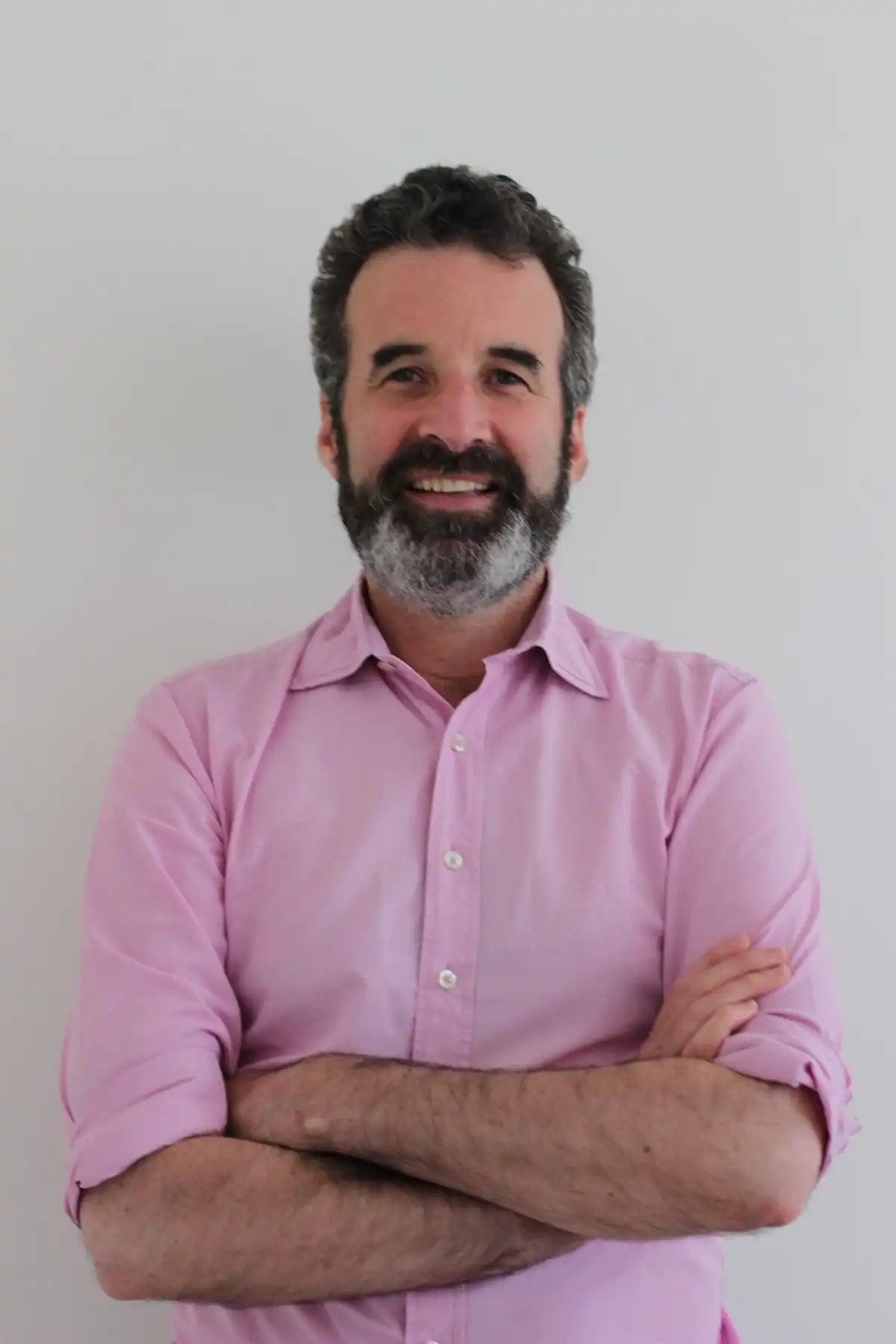Home>UNOC Interview Series - Philippe de Roux, CEO of Better with Water
13.06.2025
UNOC Interview Series - Philippe de Roux, CEO of Better with Water
With the 2025 United Nations Oceans Conference in June, the intersection of ocean policies, water management, technology, and geopolitical stability is proving to be more central than ever.
In the context of the multilateral gathering in Nice, the SciencesPo PSIA Tech and Global Affairs Innovation Hub met with experts from academia and civil society for a series of interviews to shed light on these topics that are shaping the conference conversations.
Philippe de Roux, CEO of Better with Water (BWW), leads an non-profit organization combining digital tools, social innovation and water technologies to make water distribution more accessible, equitable, and sustainable. In this interview for the Tech and Global Affairs Innovation Hub, he shares his vision on how innovation—particularly AI and data-driven water management—can support peacebuilding and climate resilience in vulnerable regions around the world.

As CEO of Better with Water, how do you see the relationship between equitable access to water and global geopolitical stability, especially in regions already under stress from climate change or political unrest?
BWW is deploying its unique approach to household water access in the slums of rapidly growing megacities. Today, 50% of the world’s population lives in cities. By 2050, it will be two-thirds: urbanization is one of the major challenges of our century. Cities like Dhaka or Manila, where BWW operates, gain between 200,000 and 300,000 new residents every year. Half of them settle in precarious outskirts—socially complex areas that lack everything, especially access to essential services.
These marginalized zones are home to the most vulnerable families, often those displaced by the impacts of climate change. Poverty, inequality, various illicit activities, and the absence of public services all contribute to endemic violence and systems of domination. It is not uncommon for women to be asked for sexual favors in exchange for a few containers of unsafe water.
BWW provides access to quality, affordable water directly from the tap at home, with a billing system adapted to each household, collected door-to-door throughout the target areas. All families—from the better-off, usually living along the main roads, to the poorest, crammed in the back of the settlements—benefit from the same service. This undermines informal resale systems and creates a powerful effect of integrating slums into the urban fabric. The water is clean, immediately accessible, and cheaper.
Complementary services—such as fire prevention and disaster risk reduction, hygiene training, and community strengthening—contribute to collective well-being. In these "grey zones," where official land registration is nonexistent or uncertain, simply having a formal water bill—and therefore, an address—is a powerful tool for inclusion.
Finally, access to water and essential services changes perceptions and fosters peace, especially through partnerships between key stakeholders: municipalities, water operators, regulators, and communities working together on concrete projects—starting with the shared infrastructure of an appropriate water network connected to the city system, or joint training sessions with municipal firefighters who previously avoided entering these areas. Slum residents are no longer seen as “slumdogs” to be feared, but as fellow citizens and customers with whom positive collaboration is possible.
From a global geopolitical perspective, this form of social peace may well be one of the most meaningful responses to the desire to migrate—a desire that often begins among those pushed to the fringes of urban nightmares.
With water becoming an increasingly strategic resource, how can international cooperation—such as discussions at the UN Oceans Conference—play a role in preventing water-related conflicts and fostering stability?
The media and political decision-makers are fixated on AI, “smart cities,” and the “tech conquistadors,” to borrow Giuliano Da Empoli’s phrase. But the real technological revolution lies in large-scale access to essential services—first and foremost, water and sanitation—in the megacities of the Global South. These cities include dense and complex neighborhoods where both technical and social innovation are urgently needed.
Yet these urban areas have limited resources, due to difficulties in tax collection and the inability to prioritize investments in infrastructure—investments that, while costly, are essential for economic takeoff and therefore highly profitable in the long term.
Let us remember that historically, during the first half of the 20th century, municipalities in Northern countries allocated 30 to 40% of their budgets—and therefore of collected taxes—to the construction of water and sanitation systems. This created significant economic and social value, with widespread ripple effects throughout the ecosystem.
We must urgently do the same in the megacities of the South, transforming them into harmonious urban spaces rather than allowing the continued spread of the urban hellscapes we know today—breeding grounds for violence and instability.
To achieve this, it's essential to address both good governance and anti-corruption efforts, so that necessary funds are actually directed toward these vital infrastructures. Strong institutions are also needed—ones that can collect taxes efficiently and at low cost, while also preventing avoidance strategies, especially by the wealthiest.
Finally, international cooperation must be revitalized—both in terms of technical support and infrastructure financing. This must happen even in a cultural and political context that is currently less favorable to such efforts, despite the fact that this type of investment represents tremendous opportunities for sustainable and profitable growth.
Better with Water emphasizes tech-driven solutions. How do you see technologies like AI, IoT, and smart billing systems reshaping how we monitor, distribute, and value water in both urban and rural contexts?
BWW has clearly understood that water is, by nature, a low-margin market everywhere in the world. Given the complexity of the areas where we operate—namely, slums—and the demanding reporting requirements of donors, it would be impossible to scale without efficient operational management and control tools that allow for expansion with minimal reliance on support functions.
This is why we’ve been creative in leveraging easily accessible tools, such as the powerful Google Earth, which has proven highly useful for our baseline surveys, as well as standard accounting and HR management software.
At the same time, we have developed our own operational management system, equipped with numerous billing, reporting, and control features tailored to the specific needs of a local water operator working in slums and carrying out complementary social actions. This tool is designed with simplicity and robustness in mind, providing strong structural support to our teams and attracting the interest of other organizations.
Smart meters, mobile apps, and mobile payments have become essential technologies, enabling rapid response and efficient operations at low cost.
AI will likely become a valuable tool as well, helping us compile the unique datasets we collect, improve service quality, and demonstrate our impact. This is already part of the roadmap for our Monitoring & Evaluation (M&E) unit. For example, AI is increasingly used in the identification and mapping of informal settlements.
Can you share examples where technological innovations your organization implemented have helped communities better manage water consumption and improve resilience and trust, especially in fragile or underserved regions?
A striking example is the smartphone application we developed, which allows beneficiary clients to sign directly upon receiving the payment receipt, issued during the weekly door-to-door collection.
This payment also triggers the printing of a receipt—in a format approved by the local tax authorities—via a portable mini terminal that is easy to use and maintain.
This official receipt, which includes an address (as mentioned earlier), is a key element in building trust between the client and BWW. It may sound simple, but developing a tool truly adapted to these constraints required significant time and collective intelligence.
Another example—which may seem more anecdotal but is in fact crucial—is the grouping of individual water meters into shared meter cages, placed in commonly used public areas.
BWW has been a pioneer and innovator in this field. The aim is to reduce the temptation of water network piracy, which is very common, and to minimize water loss. In these contexts, traditional water operators can lose up to 80% of the resource due to leaks and illegal connections, compared to 20–25% under international standards.
By combining local collection and maintenance, performed by residents of the slums themselves, with this innovative design, water loss is reduced to less than 8%—a figure comparable to the most efficient cities in the world — while also reducing the risk of leaks and contamination. This is a key factor in resilience and building long-term trust.
How do you think local solutions can be scaled up to help improve access to water beyond urban areas and potentially help appease tensions at a national, even transborder level?
Our approach is based on a clear distinction between social and technical challenges: social questions require social answers; technical questions require technical answers. However, out of convenience or a lack of understanding of the long-term process required for impact and social transformation, the tendency has often been to assume that technical solutions alone could resolve social issues.
For example, installing a sophisticated system of smart meters with remotely operated shut-off valves in case of non-payment is not enough to ensure effective collection. While the valve can technically be closed from a distance—seemingly reducing labor costs—the meter will most often be vandalized and reconnected illegally. The presence of a collector from the local community, the trust-based relationship with them, and payment regularity in a context of survival are essential. If a meter needs to be temporarily closed and quickly reopened once the arrears are paid, this human element ensures it works.
Conversely, the belief that community-based management of a service that is both technically and socially complex—such as water standpipes installed in slums, a model used for decades—could be effective has proven a dead end in every country we’ve observed. This form of management, driven by the aim to reduce costs and a certain naïveté about potential conflicts of interest, has failed to provide sustainable, viable, and equitable water access. One clear indicator is the recurrence of unpaid bills to traditional operators.
This cultural shift, combined with proven social and technical innovation, can enable economically viable and sustainable access to essential services, making it a powerful driver of development and peace.
Got a question? Interested to be involved in the Hub?
If you wish to contact the team, feel free to email us at innovationhub.psia@sciencespo.fr
